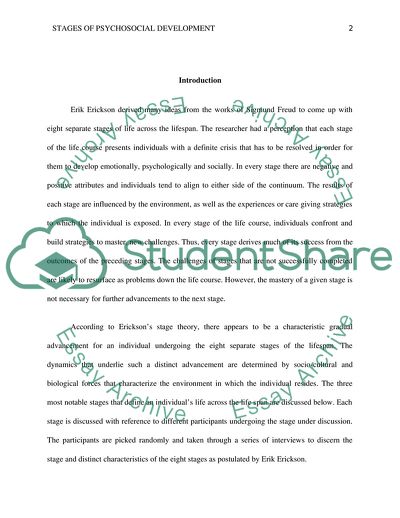Cite this document
(Erik Ericksons Stages of Psychosocial Development Coursework Example | Topics and Well Written Essays - 2500 words, n.d.)
Erik Ericksons Stages of Psychosocial Development Coursework Example | Topics and Well Written Essays - 2500 words. https://studentshare.org/psychology/1839958-erik-ericksons-stages-of-psychosocial-development
Erik Ericksons Stages of Psychosocial Development Coursework Example | Topics and Well Written Essays - 2500 words. https://studentshare.org/psychology/1839958-erik-ericksons-stages-of-psychosocial-development
(Erik Ericksons Stages of Psychosocial Development Coursework Example | Topics and Well Written Essays - 2500 Words)
Erik Ericksons Stages of Psychosocial Development Coursework Example | Topics and Well Written Essays - 2500 Words. https://studentshare.org/psychology/1839958-erik-ericksons-stages-of-psychosocial-development.
Erik Ericksons Stages of Psychosocial Development Coursework Example | Topics and Well Written Essays - 2500 Words. https://studentshare.org/psychology/1839958-erik-ericksons-stages-of-psychosocial-development.
“Erik Ericksons Stages of Psychosocial Development Coursework Example | Topics and Well Written Essays - 2500 Words”. https://studentshare.org/psychology/1839958-erik-ericksons-stages-of-psychosocial-development.


